PETA Asia Investigation Reveals Egregious Cruelty in Gucci Parent’s Supply Chain
In never-before-seen footage, a PETA Asia investigation into the Thai exotic-skins industry reveals that thousands of snakes are cruelly confined and then bashed over the head with hammers and impaled with hooks while they’re still moving.
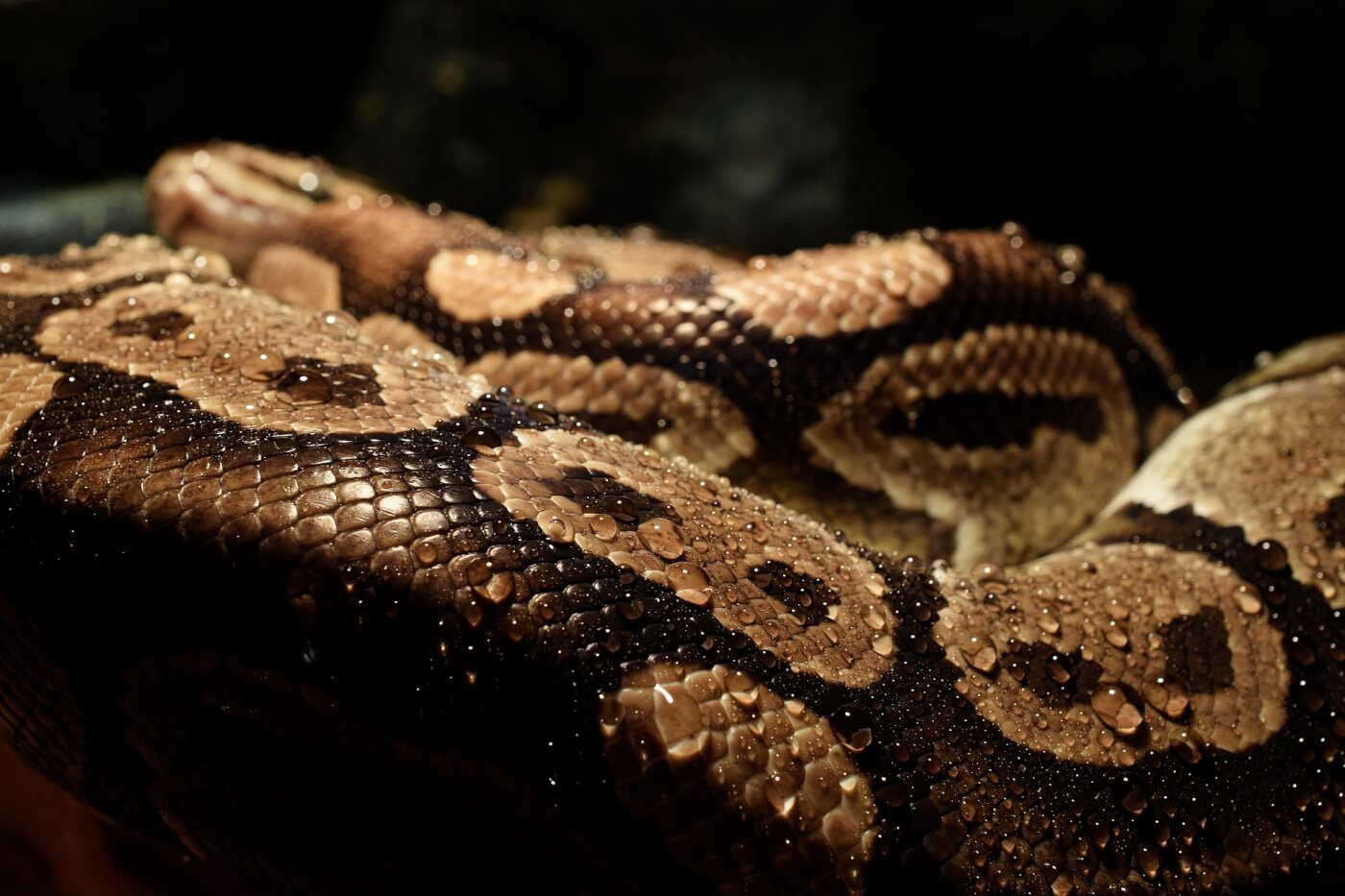
The two python farms that PETA Asia’s investigators visited supply skins to Caravel, a tannery owned by fashion conglomerate Kering—the parent company of Gucci, Yves Saint Laurent, and other brands.
PETA Asia also visited a facility in which crocodiles are stabbed with a metal blade and continue to move while workers peel off their skin—just to make bags, shoes, belts, and other accessories that are sold around the world.
Kering is supporting the immense suffering and horrifically violent deaths of animals as long as it allows its brands to sell python, crocodile, and other exotic skins.
Watch the video footage, and then use the form below to speak up in behalf of animals.
Sick Pythons, Filthy Living Conditions
In nature, pythons warm themselves in the sun, climb trees, swim, and explore extensive ranges. On two python farms that PETA Asia’s investigators visited—Closed-Cycle Breeding International (CCBI) and Sisatchanalai Python Farm—workers kept snakes in small, barren boxes and cages, some of which were filled with feces.
To maximize output, employees at CCBI bred female pythons with three or four different male pythons in one breeding season. The owner, Emilio Malucchi, admitted that pythons can die from fighting with each other during the breeding season.
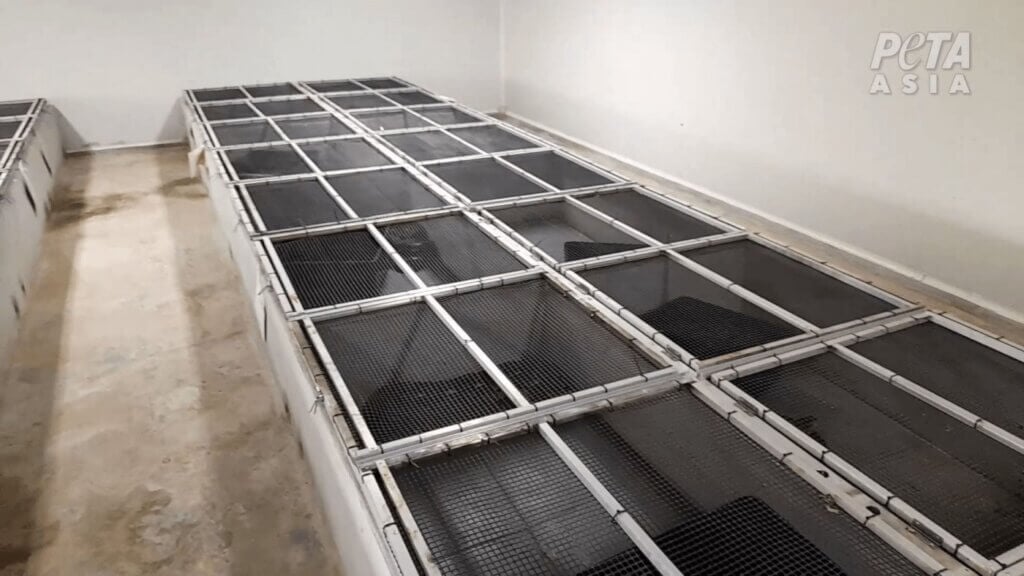
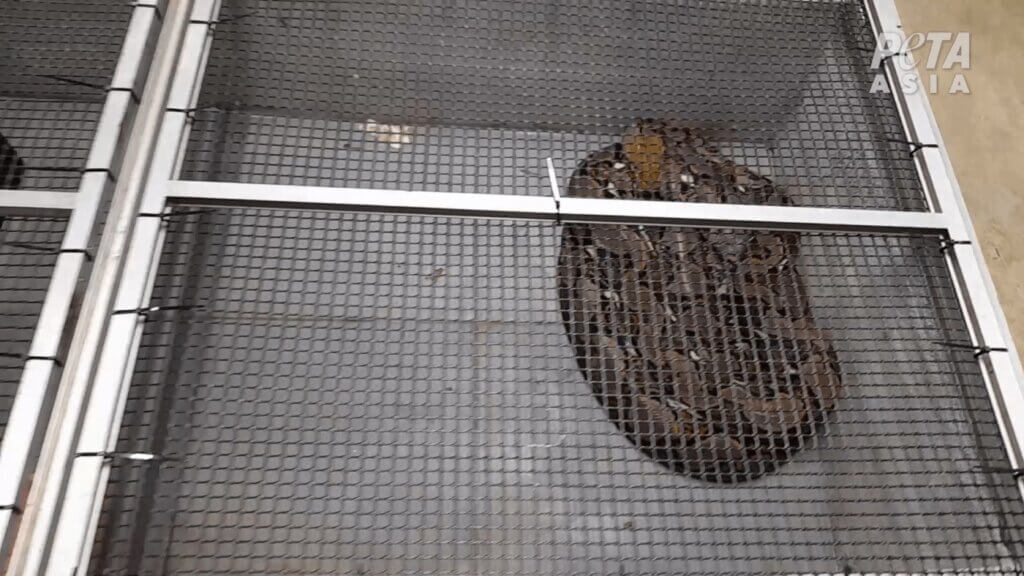
CCBI’s owner, during a tour of his father’s facility, Sisatchanalai Python Farm, also directed an investigator’s attention to an emaciated snake, noting that he or she likely “didn’t eat for a long time” and that “they should get rid of it … it’s better to kill.” The owner also said that another snake who hadn’t shed properly—causing their scales to become stuck to their eyes—should be killed.
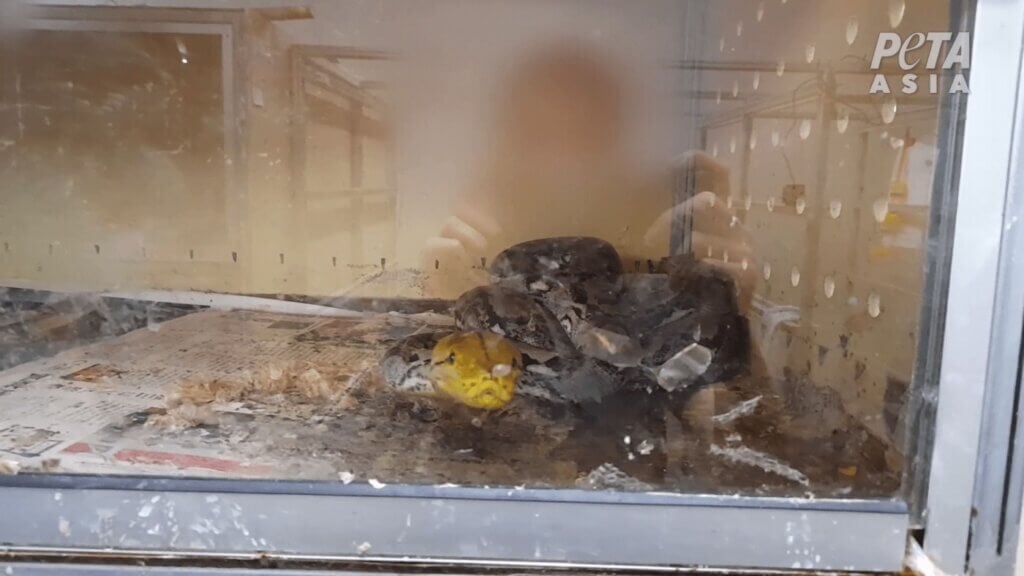
In addition to Caravel, the owner of Sisatchanalai Python Farm told an investigator that he sells skins to Gucci and Louis Vuitton.
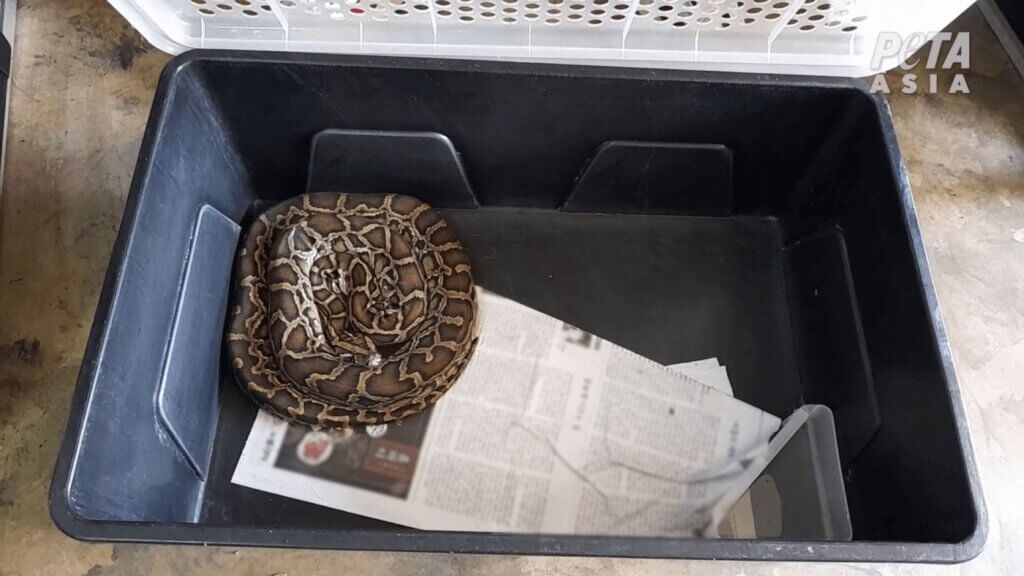
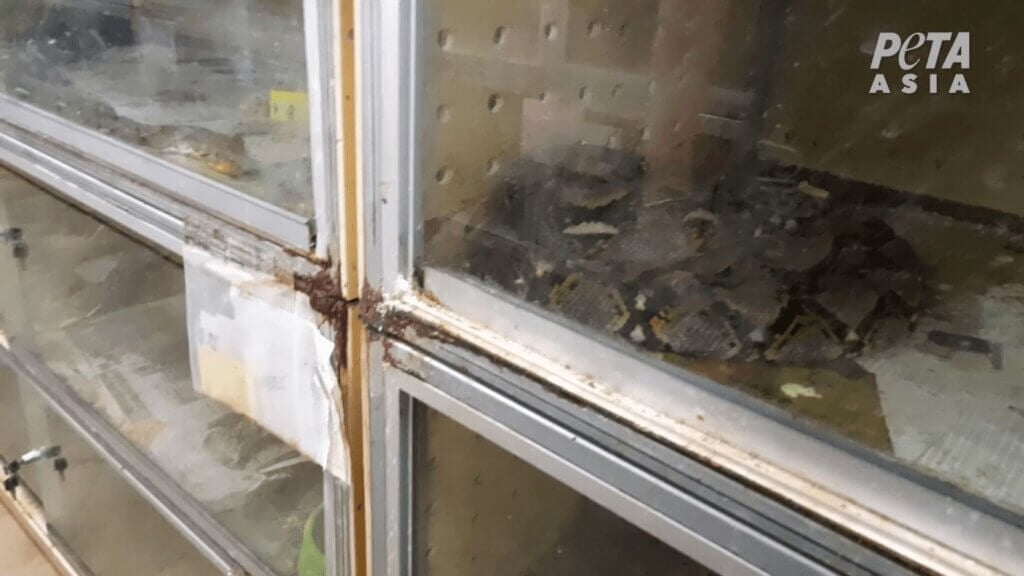

Pythons Bashed With Hammers, Impaled on Hooks
The investigators documented that workers pin struggling pythons down by the neck and smash them over the head with a hammer before driving metal hooks through their heads. To make their skins easier to remove, workers inflate the snakes with water, even as they continue to move about. According to Dr. Clifford Warwick, a reptile expert who reviewed video footage, it’s likely that most of the animals were conscious during this horrifically painful process. Then the snakes were skinned.
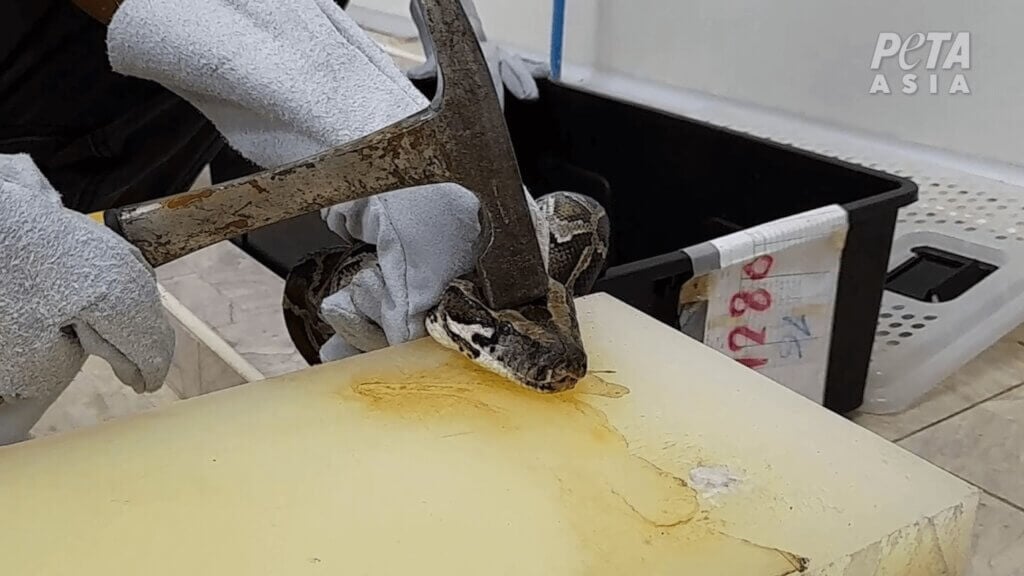
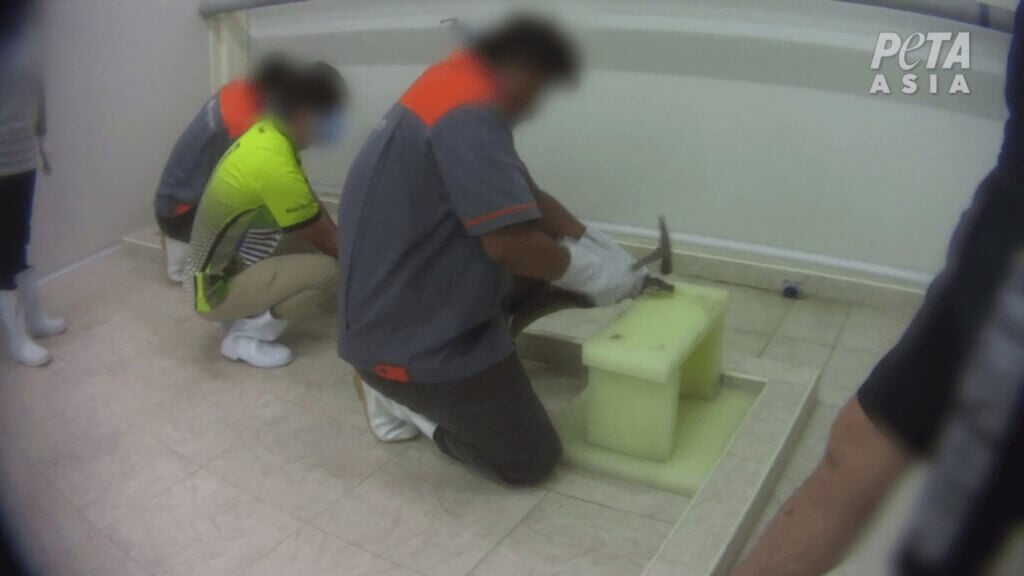
Even though there’s no scientific evidence that imposed hypothermia (i.e., chilling pythons) has any meaningful effect on reducing sensitivity or awareness in snakes, CCBI’s owner claimed that his workers put pythons in a chilled room for one day before slaughtering them.
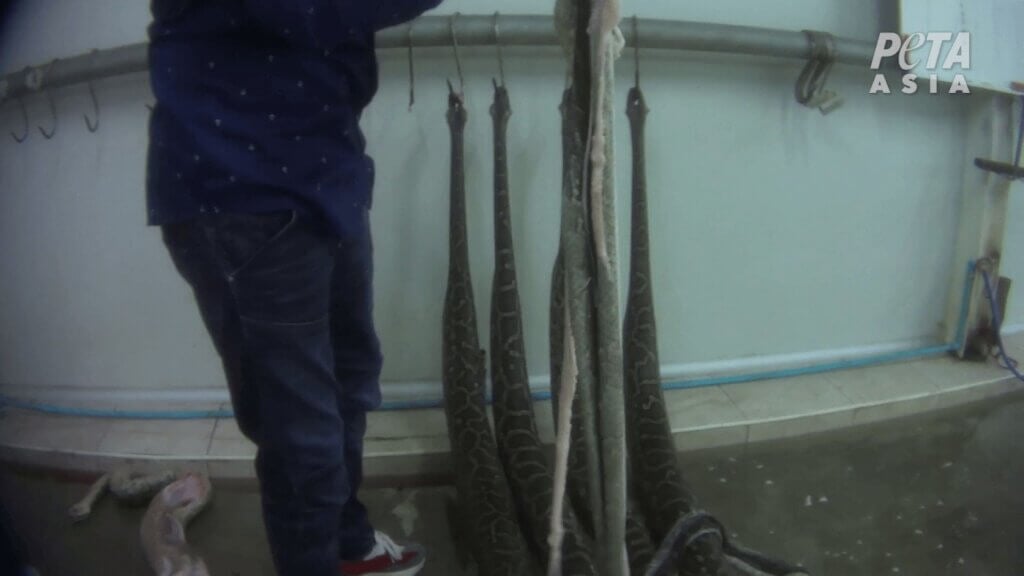
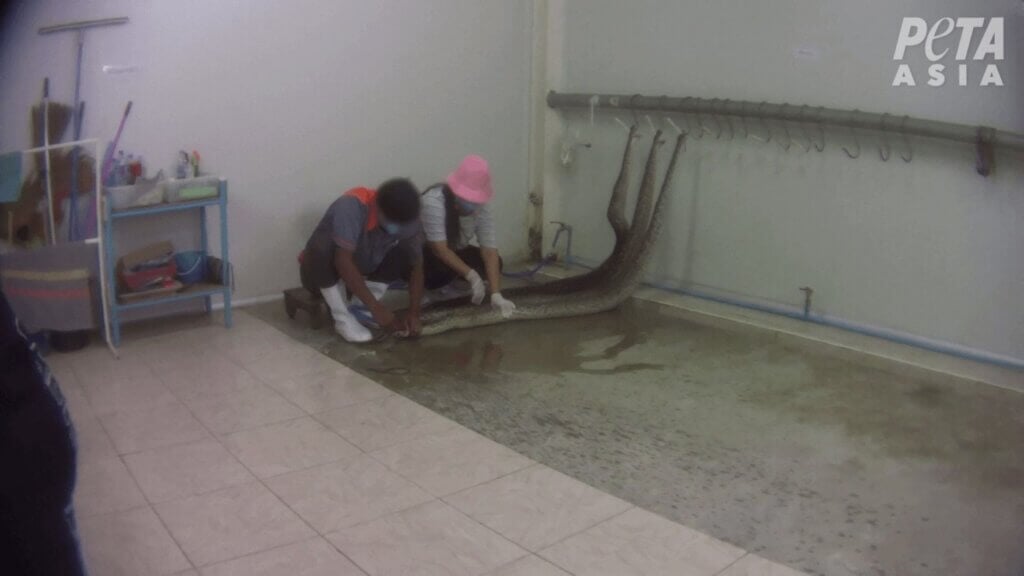
According to the owner, CCBI confined some 15,000 pythons at the time of the investigation in a massive factory-farm operation, one of the largest that PETA Asia has investigated. It slaughters approximately 2,000 snakes during its busy season—typically killing 20 to 30 pythons a day. The owner told an investigator about Caravel’s contract for the farm to supply 5,000 skins in 2024.
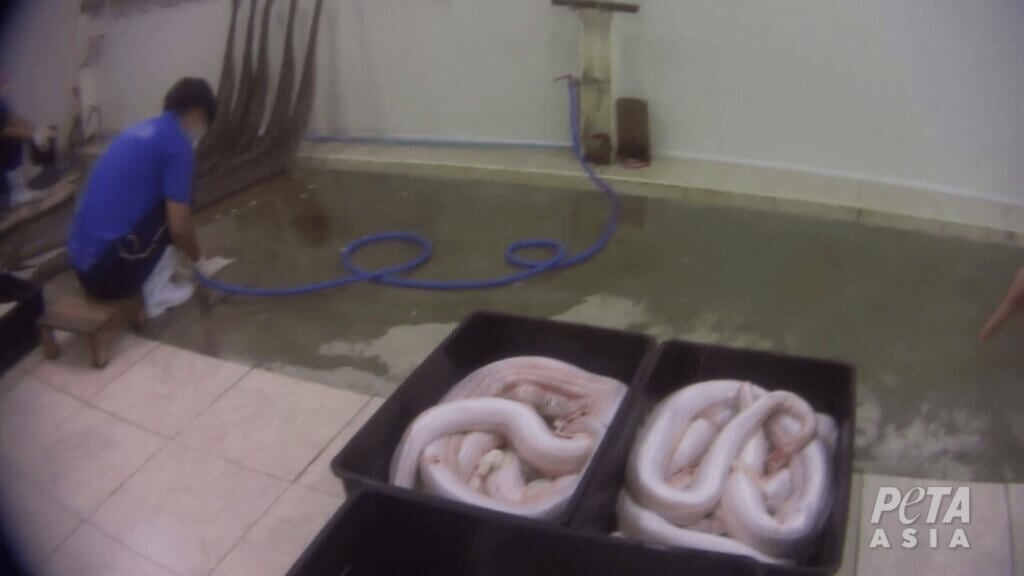

Kering’s Complicity in Snakes’ Suffering
Despite indisputable documentation of abuse at facilities that supply Kering with exotic skins—including PETA Asia’s 2021 investigation into an Indonesian slaughterhouse that provides Gucci with lizard skins—the company continues to tout its Animal Welfare Standards, which specify that animals must have “room to move around freely” and be “managed to promote good health and treated immediately should disease or injury be discovered.” The standards also require “humane handling at end of life.” Claims of upholding these standards were proved false by PETA Asia’s investigations.

Workers Stabbed Crocodiles, Skinned Them Alive
PETA Asia investigators also visited Thailand’s Phokkathara Crocodile Farm and Live Show.
This farm’s owner claimed to possess 4,000 crocodiles. These reptiles are kept in murky water pits, instead of being free to explore swamps, sun themselves, and raise their young as they would in nature. The filthy pools are breeding grounds for disease, and being kept in close confinement can prompt aggression among the stressed animals. A worker employed a crude “nape stab” method to kill a crocodile, attempting to sever the spinal cord and likely causing extreme pain and a slow, agonizing death. This animal’s legs continued to move for at least 23 minutes after the worker violently thrust a metal blade into his or her neck. Scientific evaluation suggests that crocodiles may remain alive and conscious for over an hour and a half after sustaining such injuries.
Make a Difference for Snakes and Crocodiles Right Now!
PETA and international PETA entities have repeatedly exposed the cruelty in the exotic-skins trade on three continents, which includes pumping snakes full of compressed air and scrambling alligators’ brains with metal rods.
Please don’t support this suffering. Never buy anything made from the skins of animals. With so many humane, eco-friendly vegan materials available today, there’s no legitimate excuse for continuing to wear or sell exotic skins.

Urge Kering to Drop Exotic Skins
“Humane standards” are meaningless and nothing more than an excuse to continue the cruel abuse and killing cycle. Every accessory made from the skins of reptiles represents enormous pain and suffering for these complex animals, who just want to be left alone.
Please join our call: Tell Kering to stop selling anything made from the skins of pythons and other animals through Gucci, Yves Saint Laurent, and all its other brands.